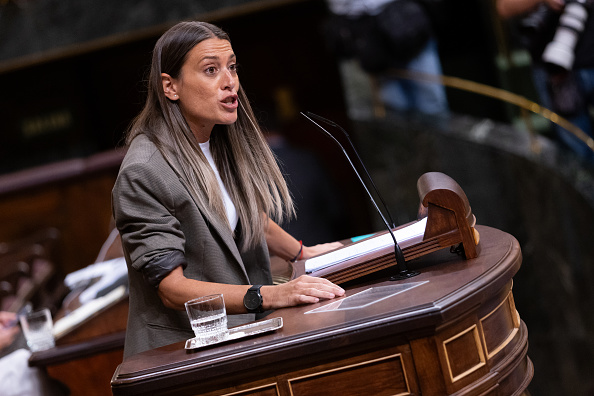Spain’s parliament has given the final greenlight to the controversial Catalan amnesty law.
The bill had been vetoed by the country’s Partido Popular (PP)-led Senate earlier this month, forcing Prime Minister Pedro Sánchez to scrape together an absolute majority in the lower house to get around the blockage.
This was finally achieved on May 30, with the Socialist-sponsored bill receiving 177 votes — one more than the minimum required to lift the Senate’s veto.
Sánchez achieved the feat with the help of his progressive coalition partner Sumar, as well as Carles Puigdemont’s separatist Junts per Catalunya party, the latter of which had formerly rejected an earlier draft of the deal as not going far enough.
The separatist Esquerra Republicana (ERC) party from Catalonia and the separatist parties of the Basque Country and Galicia also voted in favour of the amnesty bill.
The centre-right PP, the Conservative party Vox and the regional parties from the Canary Islands and Navarre, voted against the law, with their combined efforts amounting to 172 votes.
Vox MPs lashed out at the government following the ballot, with representatives in the party shouting across the parliament chamber that Sánchez and his colleagues were “traitors”.
The atmosphere soured further as Socialists and progressives MPs decried the Vox MPs as “fascists”.
Spain’s centre-right Partido Popular drew thousands of protesters against the amnesty for convicted Catalan separatists to Madrid’s famous Puerta de Alcalá. https://t.co/71Xk5WJsMH
— Brussels Signal (@brusselssignal) May 27, 2024
Sánchez’s victory comes after months of tensions within the Spanish political system over the amnesty legislation.
The president of the PP and leader of the opposition, Alberto Núñez Feijóo, had previously called Sánchez “a coward” for failing to attend a debate on the issue in the lead-up to the vote.
This was followed by Feijóo and other high-profile members of the PP demanding that Sánchez call for new elections, alleging Spanish voters had not been consulted with over the amnesty bill.
“If the amnesty law is so good, withdraw it, include it in your electoral programme and boast about it in front of Spain,” Feijóo later told Sánchez.
While the amnesty law relates to convicted Catalan separatists, the scope and form of its application is still unclear. Several legal challenges are expected to be filed in the coming days.
Madrid’s regional PM Isabel Díaz Ayuso announced on May 30 that the Madrid Autonomous Community will file an unconstitutionality lawsuit against the legislation, with other PP-governed Autonomous Communities set to present lawsuits of their own.
It is also unclear how or when Puigdemont might return to Spain. He is currently in exile in Waterloo, Belgium.
The separatist parties from Catalonia celebrated the passing of the bill, adding they would now work towards securing a self-determination referendum for the independence of Catalonia.
Santiago Abascal, the President of Spain’s Conservative VOX party, vowed to withdraw his country’s recent recognition of Palestinian statehood “when” he “becomes prime minister”. https://t.co/BcKynXohXT
— Brussels Signal (@brusselssignal) May 29, 2024





